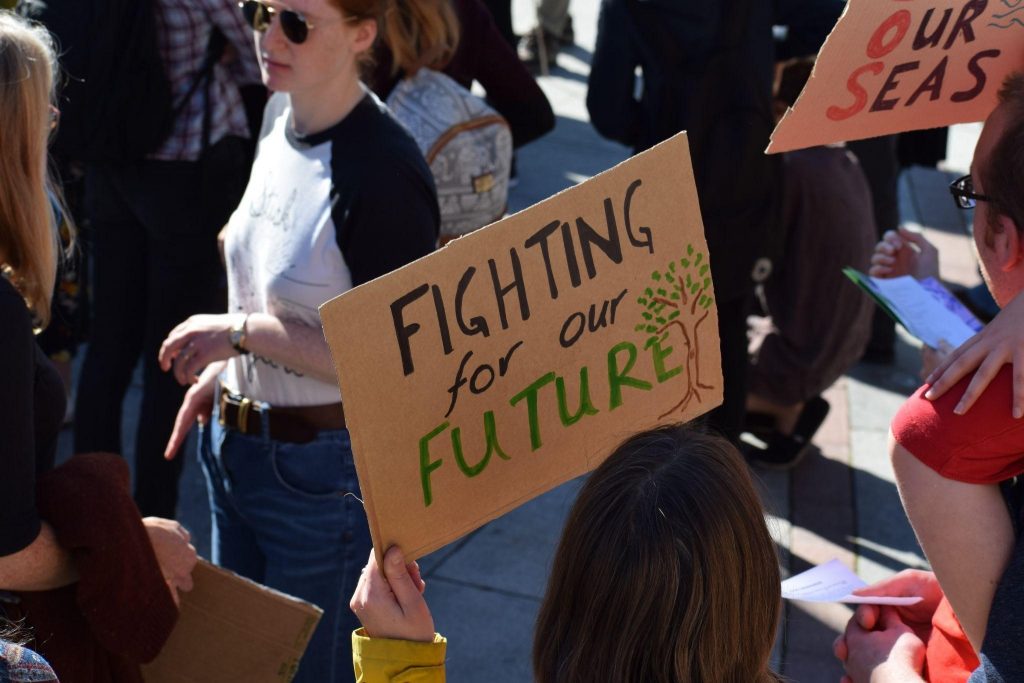
Introducing guest blogger Martha Laramore-Josey, a Yale Conservation Scholar and junior at Barnard College of Columbia University studying psychology and environmental science. She is passionate about the intersections of mental health, conservation, and environmental justice, and has joined Save the Sound as an environmental justice intern this summer. Martha has authored this blog to address climate anxiety in today’s youth in hopes it will support Save the Sound’s younger audiences.
Climate anxiety is becoming increasingly present in conversations surrounding climate change. Natural disasters resulting from the ongoing climate crisis have the ability to not only destroy the physical infrastructure we rely on, but our social infrastructure as well. This destruction adds stress and can threaten the mental health of vulnerable individuals (Clayton, 2020 ). Climate anxiety is defined as “the emotional and mental states associated with heightened awareness of climate change and concurrent distress in the face of its threatening implications for the future” ( Baudon and Jachens, 2021 ). Anyone who knows about climate change and the danger it poses can be affected by climate anxiety, regardless of their personal vulnerability because climate change is a real ongoing and developing threat that is shared globally. The relationship between the climate crisis and mental health has a rapidly expanding body of research. Given the large amount of youth involvement in environmental movements and the fact that young people will be most affected by the climate crisis over the course of their lifetimes, the climate crisis has unique implications for the mental health of young people.

A 2021 article written by Francis Vergunst and Helen L. Berry found that children are more likely to worry about climate change than any other age group and because children are more at risk for developing psychiatric disorders, climate change related stressors are of more prevalence. Children tend to have more severe eco-anxiety than mild, and this anxiety is worsened when adults do not validate their fears. A global survey of 10 countries found that almost 60% of children and young people felt “very” or “extremely” worried about climate change and more than 45% of participants said their feelings about climate change negatively impacted their daily lives ( Hickman et al., 2021) ). While this climate anxiety can serve as motivation to engage in environmental activism, it can also have the opposite effect and lead to “eco-paralysis”– feeling that you cannot do anything to positively change climate change as referenced in Susan Clayton’s 2020 article. The current generation of young people will need to adapt to climate change in drastic ways, making it even more important to support children in moving to the mobilizing side of eco-anxiety as opposed to the paralyzing side ( Léger-Goodes et al., 2023 ). Engaging in environmental efforts can lead to an “adaptation-mitigation cascade” where working to mitigate climate change through environmental movements can help people adapt to the threat of the climate crisis (Clayton, 2020) . In terms of mental health, participating in pro climate actions can increase feelings of competence and efficacy which can ease climate anxiety.
Here are a few tips for easing climate anxiety that may be useful for people of all walks of life who are worried about climate change. Of course, climate anxiety can affect people of all ages, and anyone can benefit from employing some of the strategies listed below!
- Recognize, validate, and understand the fears voiced by those who concerned about the climate crisis, particularly those who have been most impacted by it
- Encourage participation in collective pro-environmental actions such as beach clean ups, attending rallies, and writing to legislators. Research organizations that are leading such efforts and volunteer with them! Our team at Save the Sound is always happy to accept new volunteers for events such as our Connecticut Cleanup series
- Uphold connections to outdoor spaces. Spend time in nature– go for a walk, start a garden, or visit a local park
- Boost personal preparedness. Make and practice household emergency plans for severe weather
- Have clear and frequent conversations about feelings surrounding climate change
While these steps are a great way to ease your climate anxiety, they may not always be easy. It may take time for you to feel comfortable talking about fears related to climate change, but it is important that we help each other navigate the complex feelings that arise as a result of the climate crisis.
